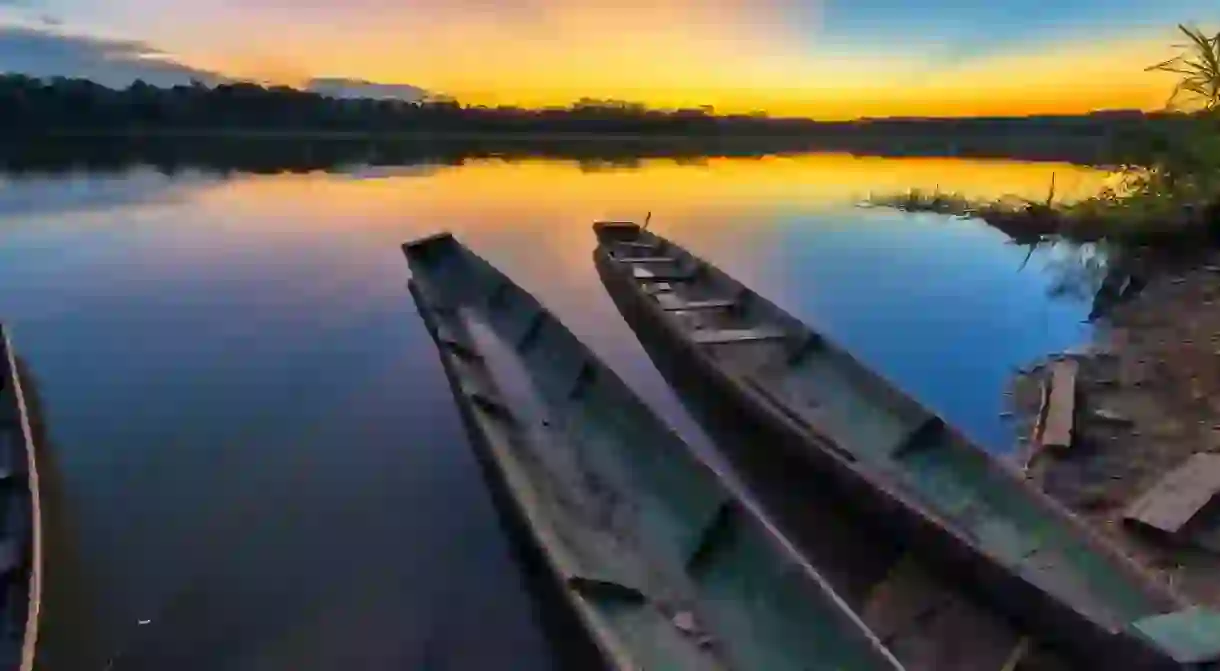10 Things to Know Before Visiting Madidi National Park, Bolivia

Hankering for an exotic Amazon adventure? Then look no further than Bolivia’s incredible Madidi National Park, a mammoth protected region that boasts some of the richest biodiversity on Earth. Given the park remains relatively off the beaten track, it’s best to do some planning to make the most out of the experience. Here are 10 things to know before visiting for yourself.
It can be a challenge to reach in the wet season
Flights to the hub town of Rurrenabeque can be complicated during the more humid months when torrential rain and poor visibility can delay departures for days on end. Similarly, the arduous 15-hour bus ride from La Paz can last several days if the precarious mountain road gets literally washed away.

When to visit
As you may have guessed, the dry season (April to October) is the best time to visit as transport is a breeze and the wildlife tends to congregate around rivers where it is easy to spot. Inside the park, the wetter months are lush if not a little soggy, but be aware that the mosquitoes will be out in force.
The place is huge
Stretching from towering Andean peaks down to the steamy Amazon below, Madidi spans an impressive 19,000 square kilometers (7336 square miles), making it one of the most significant protected areas in Bolivia.

Diversity is off the charts
Considered to be one of the most biodiverse regions on Earth, Madidi is home to a plethora of exotic Amazonian animals including over 120,000 insect species. Expect to come face to face with caiman, turtles, capybara, macaws, and hoards of squawking monkeys. Lucky travelers may even spot an elusive jaguar or those cute giant river otters.
Especially the birdlife
The park is a birders paradise, boasting 1,254 individual species with more being discovered each year. This equates to a staggering 14% of the 9,000 plus identified species worldwide.

The wildlife isn’t always accessible
Despite such an abundance of life, spotting these exotic creatures can be challenging due to the dense jungle terrain. Travelers purely after a wildlife safari experience should check out the nearby pampas wetlands instead.
People live there too
Some 50 odd indigenous communities inhabit the park, blending their ancient customs with the luxuries of modern life. Many have turned to eco-tourism in recent years, meaning it’s highly likely you’ll have the chance to interact with a few Amazon natives first hand.

It’s the setting of a Hollywood film
The 2017 biopic Jungle follows an Israeli backpacker by the name of Yossi Ghinsberg who got lost in the region during the early 80s, miraculously managing to survive after a harrowing three weeks.
Most accommodation is outside the park
Due to government restrictions, most lodges reside outside the official park boundary. One internal option, however, is the superb community-run Chalalan Lodge, the brainchild of none other than Yossi Ghinsberg himself. Chalalan and numerous other lodges offer all-inclusive multiday packages which cover safari excursions and full board.

It’s under threat
A controversial hydroelectric project could see a dam built in the spectacular Bala Gorge which would flood vast swathes of the park and displace both human and animal life. The project is currently undergoing a feasibility study and, if built, could change Madidi forever.













